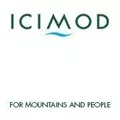


The Hindu Kush Himalaya (HKH) region stretches 3,500 km across Asia, spanning eight countries – Afghanistan, Bangladesh, Bhutan, China, India, Myanmar, Nepal, and Pakistan. Encompassing high-altitude mountain ranges, mid-hills, and plains, the zone is vital for the food, water, and energy security of around two billion people and is a habitat for countless irreplaceable species. It is also acutely fragile and at the frontline of the impacts of the triple planetary crisis of climate change, pollution, and biodiversity loss.
The International Centre for Integrated Mountain Development (ICIMOD), based in Kathmandu, Nepal, is an international organisation established in 1983, that is working to make this critical region greener, more inclusive and climate resilient. For more information, read our Strategy 2030 and explore our website.
The Hindu Kush Himalaya (HKH) region stretches 3,500 km across Asia, spanning eight countries – Afghanistan, Bangladesh, Bhutan, China, India, Myanmar, Nepal, and Pakistan. Encompassing high-altitude mountain ranges, mid-hills, and plains, the zone is vital for the food, water, and energy security of around two billion people and is a habitat for countless irreplaceable species. It is also acutely fragile and at the frontline …
Views: 2018 | This job is expired 6 years, 4 months ago
Thematic Area: Ecosystems
Programme: Transboundary Landscapes
Division: Regional REDD+ Initiative
Duty Station: Kathmandu, Nepal
Background:
The International Centre for Integrated Mountain Development (ICIMOD) seeks to enable sustainable and resilient mountain development for improved and equitable livelihoods through knowledge and regional cooperation.
ICIMOD is a regional intergovernmental learning and knowledge sharing centre serving the eight regional member countries of the Hindu Kush Himalaya (HKH) – Afghanistan, Bangladesh, Bhutan, China, India, Myanmar, Nepal, and Pakistan. Working in partnership with regional and international organizations, ICIMOD aims to influence policy and practices to meet environmental and livelihood challenges emerging in the HKH. ICIMOD provides a platform for researchers, practitioners, and policy makers from the region and around the globe to generate and share knowledge, support evidence-based decision making, and encourage regional cooperation. ICIMOD delivers impact through its six Regional Programmes: 1) Adaptation and Resilience Building, 2) Transboundary Landscapes, 3) River Basins and Cryosphere, 4) Atmosphere, 5) Mountain Environment Regional Information System, and 6) Mountain Knowledge and Action Networks. These regional programmes are supported by four Thematic Areas of Livelihoods, Ecosystem Services, Water and Air, and Geospatial Solutions, and underpinned by Knowledge Management and Communication. ICIMOD seeks to contribute to reduce poverty and vulnerability and improve the lives and livelihoods of mountain women and men, now and in the future.
The Regional REDD+ Initiative under the Transboundary Landscapes Regional Programme works directly with the REDD+ focal points of Bhutan, India, Myanmar, and Nepal, helping build their capacity and undertake research. With the initiative in its final year, the focus will be on developing State REDD+ Action Plans and conducting trainings for implementing the Biodiversity Monitoring Protocol.
Responsibilities and Tasks:
Under the overall supervision of the Group Lead of the Ecosystems Theme and under direct guidance of the REDD+ Programme Coordinator, the Research Associate will work as a team member in the Ecosystems theme. He/she will have the following duties and responsibilities:
Specific Tasks:
Minimum Qualifications:
Competencies:
Remuneration:
This job has expired.









